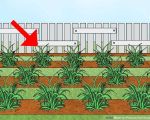Best Fertilizers for Winter Lawn Care to Keep Your Grass Thriving
As the cold weather rolls in and winter approaches, lawn care may be the last thing on your mind. However, taking the right steps in winter can make a world of difference for your lawn's health in the spring. One of the most crucial tasks during winter lawn care is choosing the best fertilizer for your grass. Over the years, I’ve learned that the right fertilizer can help protect your lawn against the cold, ensuring that it comes back strong when the warmer months arrive.
1. Why Winter Fertilizing is Important
Before we dive into the types of fertilizers, let’s talk about why winter fertilizing is important. During winter, grass is in a dormant state, but that doesn’t mean it stops growing or benefiting from nutrients. In fact, grass roots continue to grow slowly, even in colder temperatures. Fertilizing in the winter helps to build up nutrients that will sustain your lawn through the colder months and give it a strong start come springtime.
Using the right fertilizer in winter also helps maintain the strength and structure of your lawn. This is especially important in areas with harsh winters where grass can be vulnerable to frost damage. Fertilizing your lawn helps prevent damage to the roots, ensuring that when the thaw comes, your lawn will be able to recover quickly.
2. Types of Fertilizers for Winter Lawn Care
Not all fertilizers are created equal, and choosing the right one for winter is key. There are two main types of fertilizers that are ideal for winter lawn care: slow-release fertilizers and winter-specific fertilizers.
Slow-Release Fertilizers
Slow-release fertilizers are an excellent option for winter because they release nutrients gradually over time. This allows your lawn to absorb the nutrients slowly and steadily, providing consistent nourishment through the winter. Unlike quick-release fertilizers, which can cause a surge of growth that the lawn cannot use during the dormant winter months, slow-release formulas ensure that the grass gets the right amount of nutrients over a longer period.
Slow-release fertilizers also reduce the risk of burning the lawn, which can happen if too much fertilizer is applied at once. These fertilizers typically have a higher concentration of nitrogen, which is essential for root health and overall grass development. Additionally, they often contain micronutrients that support grass growth during colder months.
Winter-Specific Fertilizers
Winter-specific fertilizers are designed specifically for the needs of grass during the colder months. These formulas are lower in nitrogen and higher in potassium, which helps your lawn prepare for the cold weather. Potassium is essential for the grass's ability to withstand stress and improves the lawn’s resistance to frost and disease.
Winter fertilizers often contain additional ingredients such as iron, which helps maintain the grass's green color even during winter, and phosphorus, which supports root development. Applying a winter-specific fertilizer will ensure that your grass has the right balance of nutrients to survive the cold and bounce back when spring arrives.
3. When to Apply Winter Fertilizer
Timing is everything when it comes to fertilizing your lawn in winter. You don’t want to apply fertilizer too early, as this could lead to unnecessary growth before the grass has properly gone dormant. The best time to fertilize your lawn is typically in late fall, just before the first frost. This allows the nutrients to be absorbed into the soil, fortifying the roots before winter sets in.
In warmer climates, where grass may not go fully dormant, you might also want to apply a light winter fertilizer in early winter to keep the lawn healthy. In colder climates, however, fertilizing too late can encourage growth that’s susceptible to frost damage. Always check the forecast to ensure that the temperatures will remain mild for several days after applying fertilizer.
4. Organic vs. Synthetic Fertilizers
When choosing a fertilizer for winter lawn care, you also have to decide between organic and synthetic options. Both types of fertilizers have their pros and cons, but ultimately, it depends on what you're looking for in terms of care and environmental impact.
Organic Fertilizers
Organic fertilizers are made from natural materials such as compost, manure, or plant-based substances. They are an eco-friendly option and improve the long-term health of your lawn and soil. Organic fertilizers often release nutrients more slowly, which is ideal for winter. They also enhance the microbial activity in the soil, promoting a healthy and balanced ecosystem.
Synthetic Fertilizers
Synthetic fertilizers are chemically engineered to provide fast and concentrated nutrients. They are often more affordable than organic options and can be formulated to meet specific nutrient requirements for your lawn. However, they can be harsher on the environment if not used properly and may lead to soil imbalances if applied excessively. For a winter fertilizer, synthetic options can work well, but it’s important to follow application instructions carefully to avoid over-fertilizing.
5. Real-Life Story: My Experience with Winter Fertilizing
Several years ago, I decided to try winter fertilizing after hearing so much about its benefits. I was skeptical at first since my lawn had always gone dormant during the winter, but I decided to give it a shot. I chose a slow-release fertilizer with added potassium and applied it in late November, just before the first frost. I was amazed at how much healthier my lawn looked come spring. The grass was greener, the blades were thicker, and the lawn looked much more vibrant compared to previous years.
Since then, I’ve made winter fertilizing a regular part of my lawn care routine. It has helped prevent winter damage and has given me a head start on the growing season. I highly recommend giving it a try, especially if you live in a region with harsh winters.
6. Other Tips for Winter Lawn Care
Winter fertilizing is just one part of the equation. There are a few other things you can do to ensure your lawn stays healthy during the colder months:
- Keep Your Lawn Clear of Debris: Fallen leaves, branches, or other debris can smother your grass, preventing it from breathing and absorbing nutrients. Regularly clear your lawn to give it the best chance of staying healthy.
- Water Properly: Although your lawn won’t need as much water in winter, it’s still important to water when necessary. Make sure the lawn isn’t drying out completely, especially during periods of warmer winter weather.
- Consider Lawn Care Services: If you’re not sure about fertilizing or don’t have time to take care of your lawn, lawn care services can help you keep your yard looking its best. They offer professional knowledge and tools to apply the right fertilizers and treatments at the right time.








